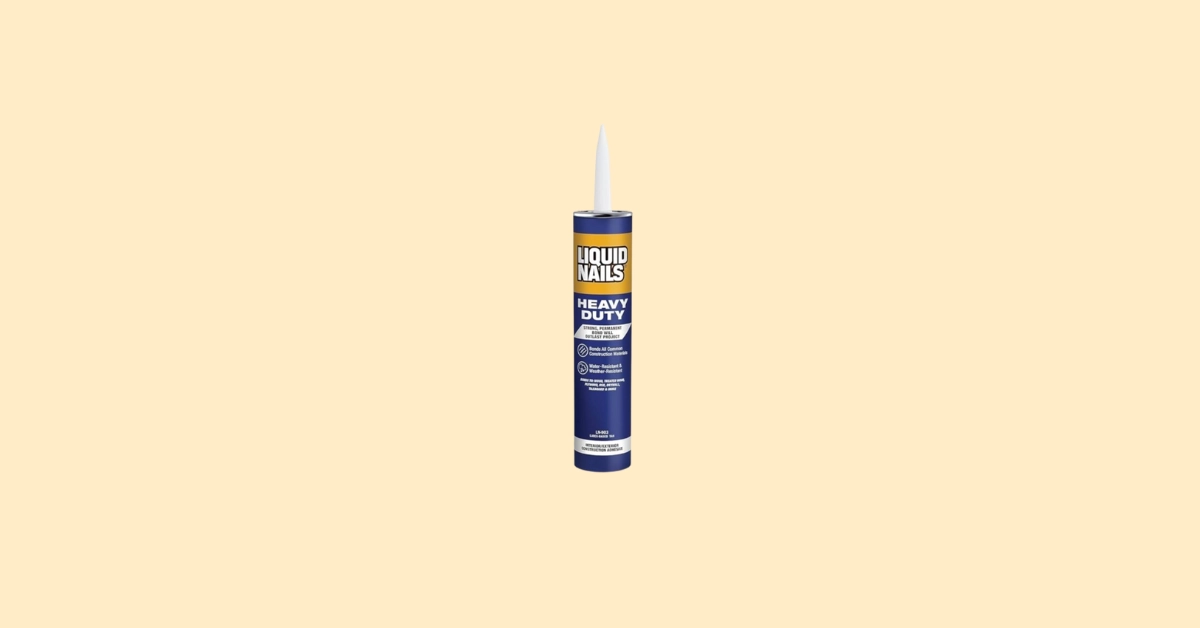Construction adhesive is the most common thing that comes to mind when working on a big project. But can you use construction adhesive for tile?
Although using construction adhesive for tile work can be tempting because it is strong, it is not usually the best choice for most tile installations.
You should not use construction adhesive in places like bathrooms and kitchens, where there is moisture and heat. It’s better to use adhesives designed explicitly for tiles to ensure a long-lasting and sturdy bond.
However, there are types of construction adhesive that you can use for tiles in dry areas. Let’s explore those adhesive types:
Types of Construction Adhesive for Tile
Polyurethane-Based Adhesive
You can use polyurethane-based adhesive if you work with small or lightweight tiles. Polyurethane-based adhesives work well on surfaces like wood or drywall. They create a strong bond and are also flexible.
The main advantages of polyurethane adhesive are its water resistance and ability to handle some movement. So, if you are working on areas with minor expansion or contraction, polyurethane-based adhesive is for you.
However, you cannot use this adhesive for large tile installations. Areas with high heat will also destroy polyurethane adhesive.
Epoxy-Based Adhesive
Epoxy-based adhesives always provide a durable bond. They are composed of a resin hardener. If polyurethane adhesive is not working, epoxy will work better. It’s moisture-resistant and can withstand extreme temperatures.
It means epoxy is best for outdoor or high-traffic areas with heavy tiles. However, epoxy is challenging, more expensive, and requires precise mixing, so a professional must do it.
Modified Silicone Adhesive
The most common place you need tile adjustment is the bathroom backsplashes. Modified silicone adhesive is the best for bathroom or decorative wall tiles. It’s flexible, mold-resistant, and waterproof.
Since it’s mold-resistant, you can use modified silicone adhesive in damp environments. However, it is not ideal for heavy floor tiles or areas under constant pressure. So use it only for small tiles.
Acrylic-Based Construction Adhesive
Acrylic-based construction adhesive is best for indoor wall tiles. It will also work in low-moisture areas.
You can’t use acrylic construction adhesive in the bathroom or any damp area. However, it will bond well to various surfaces and has moderate water resistance. Moreover, acrylic construction adhesive is easy to use and affordable.
It will also bond well to surfaces like drywall. So, if you want an alternative to polyurethane-based adhesive, you can use acrylic-based adhesive. One disadvantage is that it’s less intense than epoxy or thin-set mortar.
Latex Construction Adhesive
Latex is another construction adhesive that is best for small decorative tiles. It’s flexible and works well in applications that require some movement. Another advantage of latex construction adhesive is its quick drying time.
It means you don’t have to wait days for latex to dry. However, latex adhesives are unsuitable for areas with high moisture or heavy tiles.
Editor’s Opinion
If you’re considering construction adhesive for tiling, consider where it will be used. In short, choose the right adhesive for your project. While these adhesives can be cost-effective for small, decorative tiles on indoor walls, they often struggle with larger tiles or floors, potentially loosening or cracking.
Specialized tile mortars designed for moisture and temperature changes are best in wet areas like kitchens and bathrooms. Epoxy adhesives are stronger but tricky to apply. The thin-set mortar remains the top choice for durability and stability.


